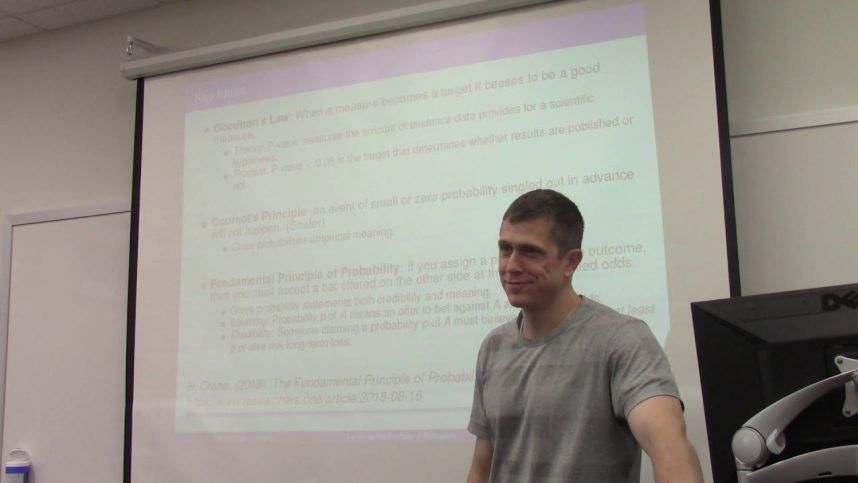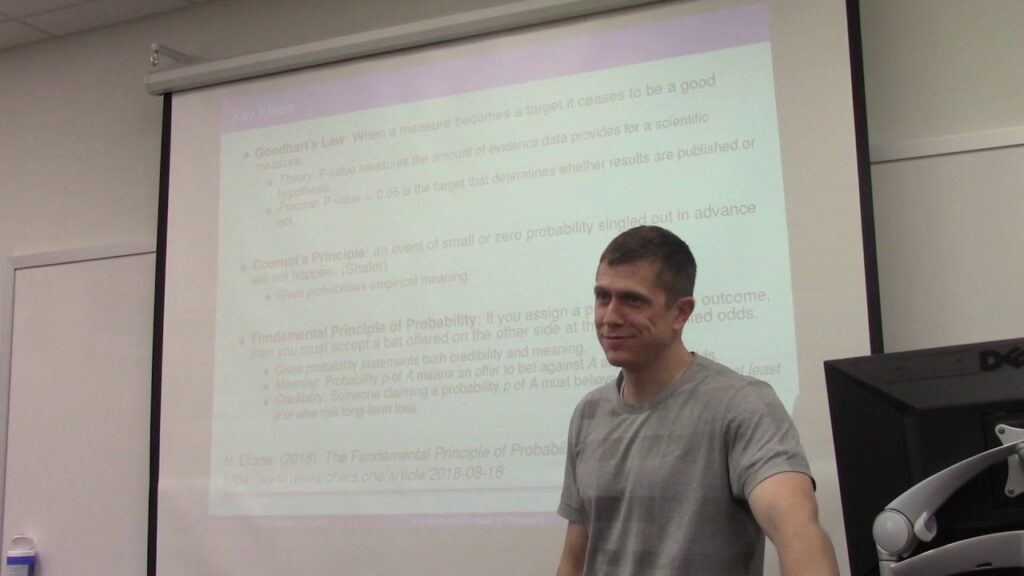Posted on: October 16, 2024, 07:34h.
Last updated on: October 16, 2024, 07:36h.
American Bettors’ Voice (ABV), a wagering advocacy group formed earlier this year, announced today that Rutgers University professor Dr. Harry Crane joined its advisory board.

A graduate of the University of Pennsylvania and the University of Chicago, Crane is well-known in sports wagering circles as one of the foremost researchers on betting exchanges, prediction markets, and sports analytics.
Dr. Crane is Professor of Statistics and Affiliated Faculty in the Graduate Program in Philosophy at Rutgers University. Professor Crane has served as a Visiting Scholar in Mathematics at the University of California at Berkeley, a Fellow at the London Mathematical Institute, and a Research Associate at the RAND Corporation,” according to a statement issued by ABV.
Crane’s addition to the ABV board arrives as sports bettors are grappling with regulatory complexities and scores of data and sources of analysis that can stymie their enjoyment and success. ABV believes Crane can help the organization better “sift through the noise” and paint a more accurate picture of what bettors are contending with in the US sports wagering landscape.
Crane Has Right Resume for ABV
Crane is the seventh member of the ABV advisory board and his credentials cement the notion that he’s a valuable addition to the group.
He’s also a co-founder of Researchers.One, a decentralized peer review platform for academic research and is one of the faculty members of Analytics.Bet — a series of online courses aimed at helping sports bettors improve their knowledge bases.
Who Is ABV?
American Bettors’ Voice was started earlier this year by Gadoon “Spanky” Kryollos and Billy Walters – two of the most successful professional sports bettors of all-time — gaming industry veteran Richard Scheutz. Scheutz has more than four decades of casino experience, including at Las Vegas and regional gaming properties.
The advocacy group is working on issues such as operators’ proclivity for limiting winning bettors, building improved terms and conditions policies, and improved payment times, among others.
“While legislators, operators, regulators, and lobbyists have been marching along in state after state, introducing their version of sports betting, this has been done with little transparency and no consideration for creating a sustainable model,” according to the group’s website. “Presenting the sports bettor with a take-it-or-leave-it model without understanding what the consumer wants is a fool’s errand and will work against many of the stated goals of why betting was legalized.”




